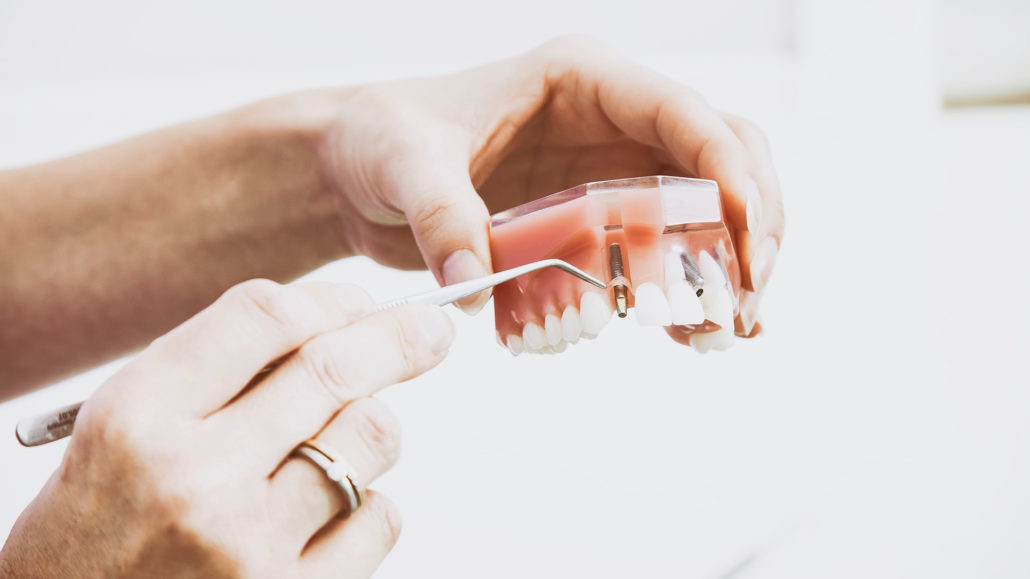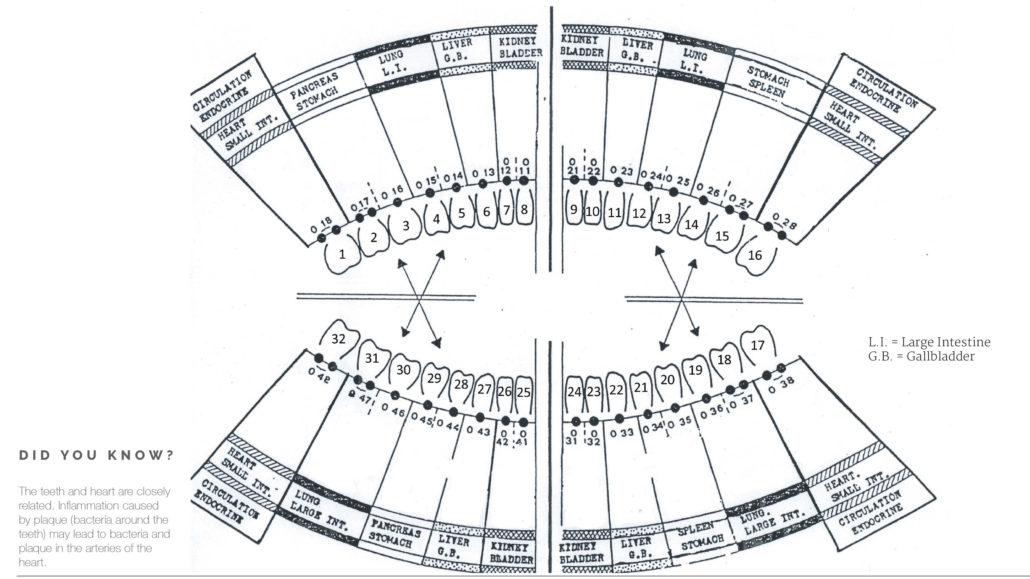Everything You Need to Know About Biological Dentistry
If you were aware that a routine dentist visit for cavity-filling is associated with serious health risks and heavy metal toxicity, would you still continue visiting your dentist?
This article shines a light on the far-reaching implications of current dental practices on the overall health and wellbeing of patients. It discusses at length, heavy metal toxicity due to materials used in modern dentistry. Additionally, the concept of holistic dentistry is introduced, elaborating upon the need to employ a tailored approach that caters to the unique health/toxicity profile of each patient.
Implications of Conventional Dentistry on Whole Body Health
Per traditional dentistry taught in dental school, dental work begins at the oral cavity and ends at the throat. Most dental work encompasses everything from routine cleaning and cavity fills to more elaborate root canal procedures and cosmetic restorations. Unfortunately, with this approach, patients run the risk of biologically hazardous dental materials entering their circulation.

Dentists, the world over, use amalgam as the material of choice for filling decaying teeth. Much of the established health hazards stem from the use of “silver” fillings, which by composition, have been found to contain up to 50% mercury. The remaining 50% is made up of an alloy of silver, copper, and tin.
Mercury was first used for this purpose in the late 1800’s during the civil war. Since then, it has become a cost-effective industry standard. To this day, dental manufacturing companies supply it in bulk to dental clinics across the country.
The consumption of acidic food and hot beverages teamed with the mere act of chewing is sufficient to trigger the release of ppm (parts per million) levels of mercury, mercury vapor and metal alloy into our systemic circulation. Seemingly micro-ppm levels over a prolonged period of time, accumulate and result in increased body burden. In a research study conducted at the University of Calgary, chewing increased mercury levels in the oral cavity by six-fold in research subjects. Mercury is a well-known neurological toxin, but there is more than meets the eye. Emerging evidence has revealed a link between dental amalgams and cardiovascular disease, diabetes, and even cancer. What’s worse is that the mercury vapor released during heat-induced drilling and amalgam removal exposes both the patient and the whole dental care team including the dentist to hazards of heavy metal toxicity.
Oral Galvanism – Why Does Mercury Corrosion in the Oral Cavity Occur?
Amalgam fillings consist of a combination of mercury, silver, copper, zinc, and tin. Oral galvanism refers to a potential difference generated by two or more dissimilar metals in the mouth. Combined with human saliva, the different metals in the amalgam filling together, act much like a battery generating a minor electrical current (up to 5 microamps) and thereby an acidic pH in the mouth.
This acidic environment and electrical current increase the rate of breakdown of amalgam fillings ultimately resulting in the release of mercury vapors into the oral cavity. It aggravates mercury-based toxicity and clinically presents as headaches, vertigo, brain fog and a host of other central and autonomic nervous system symptoms.
Active removal of metals from the mouth followed by a detoxification protocol (i.e. IV Detox, Neural Therapy, and Chelation Therapy) to eliminate heavy metal deposits within organ systems is a potent way to detox the body. Part of such a detox protocol is also to include a high alkaline diet to alkalize the acidic terrain of the oral cavity. Additionally, homeopathic support has been found to be helpful to reduce the toxic burden of the patient.
Dental Foci and Root Canals – the Missing Link to Chronic Systemic Infections?
Dental Foci refers to a localized point of infection due to a decaying tooth or gum inflammation which translates to a more chronic systemic infection. A dental extraction or root canal procedure can involve exposing the local area filled with bacteria. If the wound region is improperly healed or has remnant bacteria and pathogens, they get easy access to our circulation. Biological dentists who employ a holistic approach to healing consider this otherwise-not-obvious link to chronic disease and devise treatment strategies to account for systemic infection.
Given the rising awareness and concern among patients regarding dental amalgams and conventional dentistry; alternate holistic dental practices have become the need of the hour.
In this context, Biological Dentistry has become an innovative alternative.
What is Biological Dentistry?
Biological Dentistry is an integrative holistic approach to conventional dental practice. It debunks the concept that the oral cavity is a separate disconnected entity and the patient, merely, a set of teeth to be worked on. It is based on the fundamental principle that the oral cavity is interconnected to gut physiology and all other organ systems.
Biological Dentistry is defined as – “Dental medicine that partners with the patient and practitioner to develop and integrate biologically safe and effective emerging treatment modalities that allow for holistic healing beyond the oral cavity.”

Biological dentistry insists on empowering the patient to self-heal. Counseling is provided such that the wellbeing of the patient is not entirely outsourced to the dental care team. The patient is encouraged to take responsibility for their own health and use the care provider as a support system.
Goals of a Biological Dentist
- Consider the mind, body and emotional status of a patient beyond just the physical plane
- Exhaustive investigation of the patient’s medical history
- Examine the initial body burden and toxicity profile
- Understand which organs of elimination need support in detoxification before zeroing in on a treatment plan
- Educate the patient about consequent detoxification protocols
- Minimize exposure of the patient + dental care team to toxic mercury vapors
- Assess the patient’s immune response to biocompatible materials subsequently inserted into their oral cavity
- Communicate with an integrative team of care providers (Homeopathic, Naturopathic physicians, Immunologists, and Toxicologists) to establish a holistic and individualized treatment plan that caters to the patient’s unique health needs
Tools used in Biological Dentistry
- Ozone therapy in the form of ozonated water and ozone gas is an effective, natural yet safe method to eliminate pathogens in the oral cavity. This treatment modality is used extensively by biological dentists. What sets apart ozone therapy in this regard is that it supports the body to regain its inherent homeostasis and creates an impact at a fundamental level.
- Unlike conventional dental clinics, biological dentists actively engage in protocols (latex dams) that eliminate or minimize exposure of the patient and dental care team to mercury vapors (emitted as aerosols) during a drilling procedure.
- Neural Therapy, Oxidative treatment, of dental foci supports the removal of bacteria in the root region that could potentially enter systemic circulation and are the cause for chronic infections stemming from a dysregulated set of internal organs
- Use of Homeopathic and Isopathic dental injection therapy as part of extraction and root canal procedures
The Mouth is the Portal to the Rest of the Body
Traditional Chinese Medicine (TCM) posits a model of a “tooth body” wherein there is an energy meridian (Qi) coursing through the mouth to the rest of the internal organs. Per this theory, each tooth is energetically connected to a specific organ system. The health of individual teeth can, therefore, be seen as a mirror reflection of the health of the corresponding internal organ. Based on this chart, an Acupuncture practitioner is accurately able to diagnose the dysregulated internal working of our body. This ancient system has been successfully used for thousands of years. Sadly, modern dentistry often times does not take into account this model of diagnosis.

For instance, gum inflammation and dental plaque per this chart are seen to have a direct correlation to underlying cardiovascular disease. However, emerging research has shown evidence to support this hypothesis.
Changing the Paradigm of Wisdom Teeth
Wisdom teeth, much like the name suggests, have a whole lot of wisdom associated with them. The health of the four fully formed wisdom teeth in adults when closely examined per ancient TCM, reveal information regarding the overall health of internal organ systems. All four teeth are closely connected to the cardiovascular system and heart health. Furthermore, the left two wisdom teeth are a mirror to the liver, jejunum and ileum, ear, shoulder joints, ulnar hand, sacroiliac joint and segments of the spinal cord. Meanwhile, the right two wisdom teeth offer an insight into the health of the appendix, parts of the eye and ear and a multitude of other organ systems. Interestingly, TCM also associates a wide range of emotions with these wisdom teeth from positive love, joy, compassion to more negative ones such as apathy, resentment, depression, regret, guilt, feelings of rejection, etc.
Removal of wisdom teeth is a routine practice in modern dentistry. However, given the vast information stored in just these four teeth alone, wisdom teeth extraction should be a procedure performed after much deliberation on behalf of both the patient and dentist.
Based on a patient-centric model that allows for personalized care and a promise to engage in holistic healing, Biological Dentistry is bringing a paradigm shift in a long-held traditional dentistry model.
Dr. Carla Yamashiro, a biological dentist from Ecologic Dentistry, believes holistic health and wellness are closely connected to oral health.
“My approach to dentistry is holistic. Your mouth is a reflection of what’s happening throughout your entire body and can tell me a lot about your overall health. Our body constantly works toward maintaining balance or homeostasis. In an environment that supports this balance, we heal. My job is to support your healing process by providing advanced technology that offers you less invasive procedures and using the least toxic materials available for healthier choices.”
– Dr. Carla Yamashiro, DDS, NMD, IBDM

Today, you have learned that the health of the oral cavity goes far beyond dental hygiene and routine drilling-filling practices. The next time you visit your dentist, you will be fully equipped with the know-how of holistic dentistry.
The post Everything You Need to Know About Biological Dentistry appeared first on Innovative Medicine.
See how we can help you restore complete health of body, mind & spirit.
Lorem ipsum dolor sit amet, consectetur adipiscing elit, sed do eiusmod tempor incididunt ut labore et